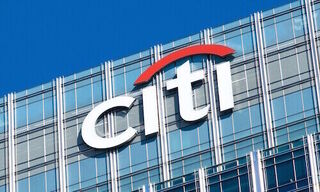Another Opponent to CS Pay Plan
More bad news for Credit Suisse: a weighty U.S. shareholder group plans to broadly reject the Swiss bank's pay policies at an investor meeting later this month, finews.com has learned.
In what appears to be a growing movement against high executive pay, the U.S.' most influential shareholder group on Tuesday said it would also fight Zurich-based Credit Suisse on the bulk of the bank's pay policies.
Institutional Shareholder Services, or ISS, is the latest to pile on the opposition to Credit Suisse over what institutional shareholders are increasingly seeing as excessive pay, something retail shareholders in Switzerland have long criticized.
«The remuneration outcomes for 2016 are not a fair reflection of the company's overall result or its impact on shareholder interests,» ISS wrote in a recommendation to clients.
«Appropriate Restraint»
A spokeswoman said it respects shareholder democracy, and had taken note of the recommendations.
ISS said Credit Suisse's board under chairman Urs Rohner and top management shouldn't enrich themselves while pleading shareholders to be patient until the bank's new strategy takes hold.
«For a bank that has underperformed its sector for the last one, three, and five year periods, this means that, among other things, the board and compensation committee should exercise appropriate restraint in the use of discretionary adjustment to variable remuneration,» ISS said.
Rohner, a Swiss lawyer who has been part of the bank's top echelons since 2003 and ran the board for the past six, has been criticized for his unwillingness to intervene in Credit Suisse's strategy.
The bank clung to investment banking far longer than rivals such as UBS, only to u-turn when Chief Executive Tidjane Thiam took the helm in 2015.
Shareholder Distaste
Although pay overall is a consultative vote in Switzerland, individual salary and bonus are subject to shareholder approval. Hugely influential ISS' recommendations are a sign that shareholder distaste over big pay packages, which prompted a law against high executive pay in Switzerland, has spilled over into far wider institutional circles.
The recommendations, more widely followed in the U.S. than Glass Lewis, which has already urged shareholders to vote down Credit Suisse on pay, are particularly noteworthy because ISS has until now hewed to the bank's line on pay issues.
Effectively, ISS is telling Credit Suisse executives to stop being grabby while the company is doing so badly, such as paying $5.3 billion last year to settle a mortgage security mis-selling probe.
Unapologetic Rohner
ISS, which can be counted on to marshall a sizable portion of Credit Suisse shareholder votes at the bank's April 28 annual meeting, aimed squarely at Rohner. The lawyer-turned-bank chairman has been harshly criticized for years – including repeatedly by finews.com – as a flag-bearer for corporate greed.
Rohner has been unapologetic for his pay – nearly 4 million Swiss francs last year, mostly in cash, as the bank's share price collapsed by one-third. But opposition from ISS poses a serious threat to his authority.
ISS rejects the bank's overall pay plan, board pay, and short- and long-term top management pay. ISS is in favor of just one pay scheme: fixed salaries promised to top management under Tidjane Thiam, which is 31 million Swiss francs in total.
Thiam earned 11.9 million francs last year, as the bank reportedly prepared to tap shareholders for extra cash to replenish its precariously thin capital cushion.
CS Among Top-Earning Boards
ISS also doesn't like how top management is still winning amid its second loss-making year running.
«Despite a second consecutive net loss, variable remuneration levels for the executive board remained high – 52 million Swiss francs for 13 members, including a 4.17 million franc short-term incentive for the CEO,»
Credit Suisse's board is among the highest-paid on the Swiss blue-chip index, ISS said.

























